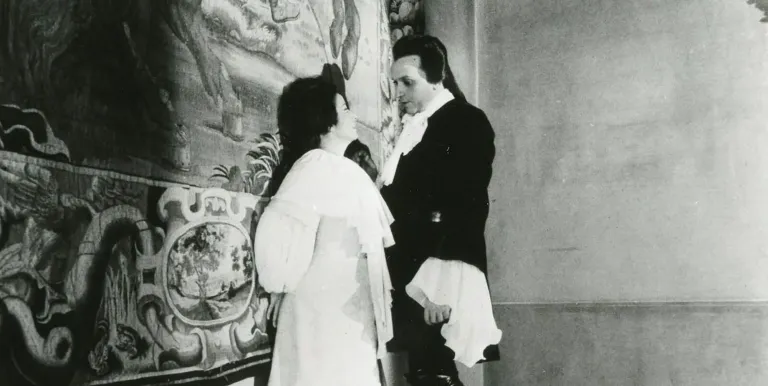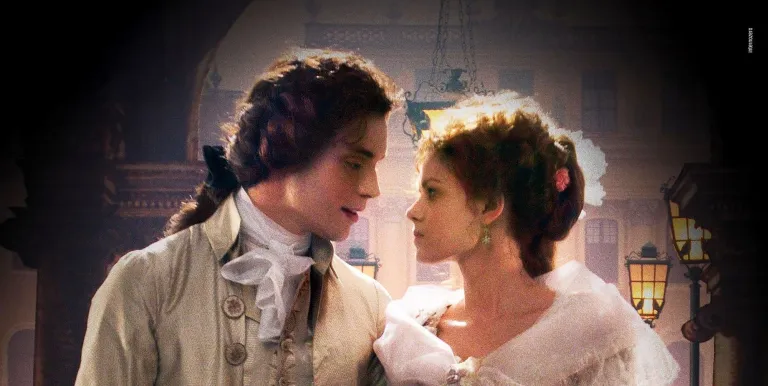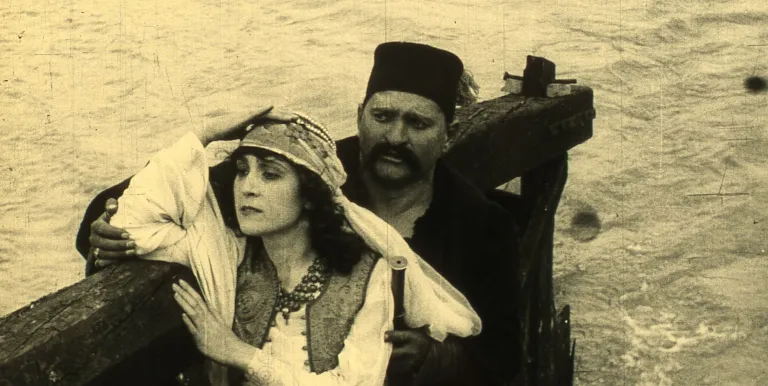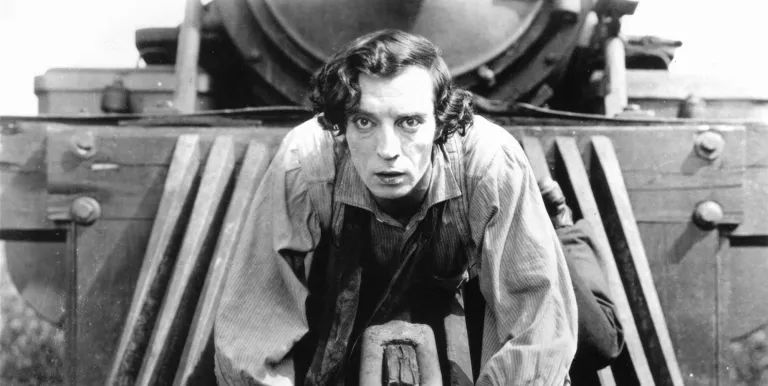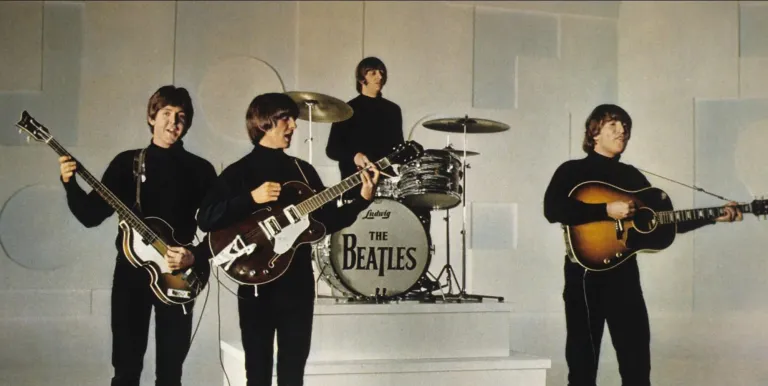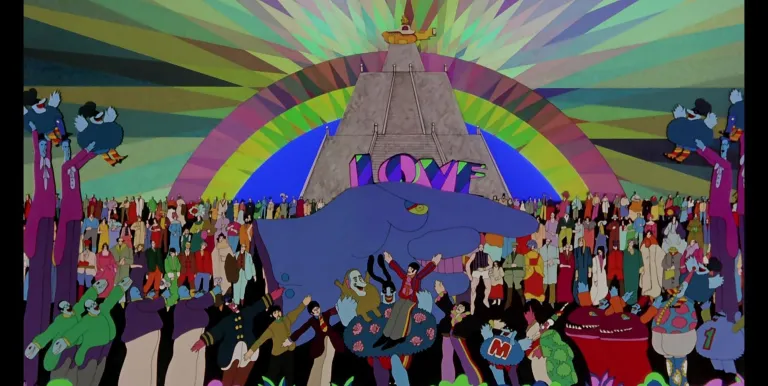Please note that by buying tickets you are accepting the house rules at Müpa Budapest, which also include the latest regulations and security rules. You can read further details and find key information on this page.
Thank you for your understanding and cooperation.
Creator:
Featuring:
There are very few Hungarian silent films left to posterity. Even Mihály Kertész's The Exile only found its way back to Hungary from abroad. Which at least means we still have the chance to enjoy the acting skills of the famous Hungarian actress Mari Jászai: it is the only surviving film in which she appears. Though those skills are difficult to judge with a modern eye. Partly because the language of silent film is not the same as that of today, but also because acting in general was also utterly different a century ago. Perhaps that it is why seeing Jászai's dramatic presence leap from the screen is such a special experience.
The Exile is a thrilling, rich spectacle. And it is a genuine film, a folk theatre-influenced piece that is distinguished from the world of stage sets by its spectacular on-location shoots (Cluj-Napoca, Rimetea, Turda Gorge). It creates realistic spaces. At the same time, there can be no denying that the stage is a defining inspiration. The film's producer, Jenő Janovics, was the director of the National Theatre in Cluj-Napoca. It was a particularly ingenious idea on his part to use the potential of theatre to create a silent film in Transylvania. Because in a theatre, not only will you find superb actors, there is also no problem when it comes to producing the scenery, props and costumes. This potential was one of the reasons that directors like Mihály Kertész and Sándor Korda travelled from the Proja film studio to Cluj-Napoca. While we often discuss Hungarian producers that worked in Hollywood, Jenő Janovics, a pioneer of Hungarian film production, rarely gets a mention. Now, here is our chance.
Mind you, it is worth noting that the film did not make it home in good condition. Its restoration and digitalisation required some difficult, painstaking work, as the people involved strived to ensure the film could be as faithful as possible to the original images of 1914 - including the acting scenes. The film score, however, is new. The music, written specifically for the film by Attila Pacsay in 2014, is a perfect match to the moving pictures.
The discussions before and after the screening will be conducted in Hungarian.
Presented by:
-
We wish to inform you that in the event that Müpa Budapest's underground garage and outdoor car park are operating at full capacity, it is advisable to plan for increased waiting times when you arrive. In order to avoid this, we recommend that you depart for our events in time, so that you you can find the ideal parking spot quickly and smoothly and arrive for our performance in comfort. The Müpa Budapest underground garage gates will be operated by an automatic number plate recognition system. Parking is free of charge for visitors with tickets to any of our paid performances on that given day. The detailed parking policy of Müpa Budapest is available here.
_211108_01-full-width-hero.webp)
_211108_01-program_calendar_list.webp)
